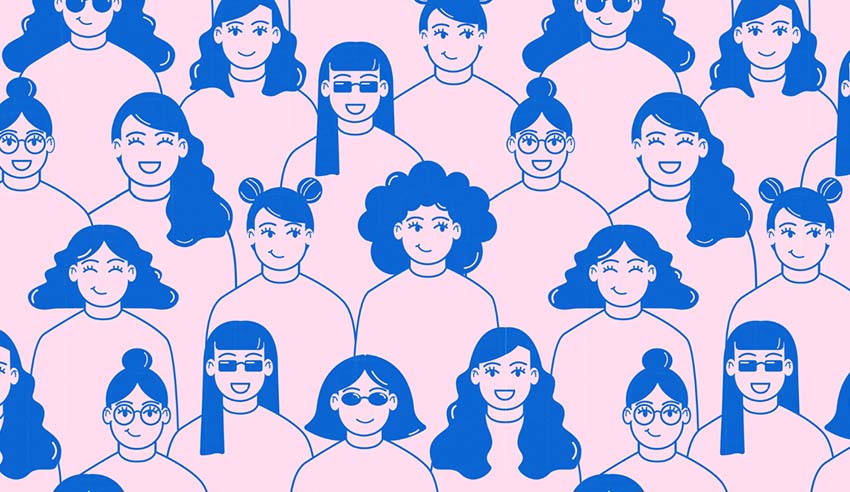By year two of law school, Chimnonyerem Duru felt overlooked by teachers and peers, and was largely disadvantaged because of her race. To prevent others from having the same fate, she created an organisation aimed at addressing and promoting diversity in law.

From law schools through to courtrooms, the legal profession has a very obvious issue with diversity: it’s rare to find it. After years spent being overlooked, ignored and largely disadvantaged due to her race, Chimnonyerem Duru developed African Legal Connect Australia (ALCA) to create a space for African lawyers to connect and succeed in law.
“I felt overlooked in terms of when I wanted to speak in class or contribute, the teachers would just ignore what I wanted to say. I had a professor tell me once to ‘tone it down’,” Ms Duru said. “Those little things [are] put in place to hold you back… which will further affect how you interact with people and view yourself in the legal space.
“If you’re being put down from the beginning stages, which is the foundation, then you don’t feel like you have any space or any capacity or capabilities in professional spaces [which] is really crippling and holds you back [from the law].”
Ms Duru said it was her own experiences and the knowledge that some of her African-Australian peers were fleeing the legal profession from the beginning that drove her to produce a space where they had opportunities. The alliance now assists students with networking, collaborating on mentorship opportunities and building on new skills.
Ms Duru herself spoke to someone who shared her experiences and found that it was enough to show that she was not alone and that she had a space in the profession.
“I feel every experience that you actually get in law school helps you become the better lawyer you want to be tomorrow because you know how to connect with people. These experiences shape you and help you have a broader overview of life in general.”
From law school to the bar: What needs to be done differently
From the law school level, Ms Duru said that it has to go much higher than this to have any real chance of changing the approach to diversity. However, there is some change that can begin now, starting with having a hard look at teaching frameworks, speaking to people from diverse backgrounds and considering the law is much different now.
At the firm level, there is much that can be done immediately. For one thing, their hiring processes need a change. African and other diverse groups should be given a fighting chance at the role, but it should be for their skills in the law—of which there are many—and not just so the firm can “fill a quota” or appear to be more diverse than they are.
“We’re not just saying, ‘Oh, because they’re African Australians, hire them or give them opportunities’, but look at their credentials as well. A lot of these people are bright, and they have a lot to offer, but they’re not being accepted in the legal sector because they either have a very different, traditional ethnic name—like I do—or don’t act Australian, because they are holding onto their heritage for longer,” Ms Duru said.
On a paper level when considering diversity in the judiciary, Ms Duru said they appear, at least, to want to bridge the gaps, “but, realistically, it’s not working”. She said people at the bar need to take a different approach to addressing diversity because in courts—and other judicial spaces—it is rare to find anyone outside of older, white men.
“They’re usually men, and not just men, usually white men. It shows there’s something going on there. There’s something wrong. If you’re lucky, you would see one woman—but even then, you probably will find it harder to find another one afterwards,” Ms Duru said. “It shows they’re not doing something correctly [and] need to reassess.”
Ms Duru said the judiciary may be able to make some change by creating an alternate stream to assist people of diverse backgrounds to make it to the bar. Alternatively, the judiciary needs to change their attitude and thinking towards this career progression.
“We have a lot of solicitors but some of them do not get to practice because, one, they find it hard to get jobs, or two, they stay in the same roles because they fear the racism they would encounter when they decide to go to the bar,” Ms Duru explained.
Advice to keep in mind
In concluding the episode, Ms Duru offered some advice for the young lawyers making their way through law school (or graduate positions) now: “Be true to yourself.”
“Be open to learning from people and sometimes challenge what you have learnt. Find a connection with people from different backgrounds and see how you can help. That way it follows your passion for law,” Ms Duru said. “With a money mindset [that comes with the profession], you could achieve things for yourself, but the greater impact is in doing things for other people. It is a lot more rewarding.”
Ms Duru also emphasised wellness and mental health. She said to not underestimate how important taking rest is as the stress of the profession builds up.
“If you need to take time off for anything, and switch off from the outside world, do it.”
Listen to the entire interview here!
CREDIT: Image source.
